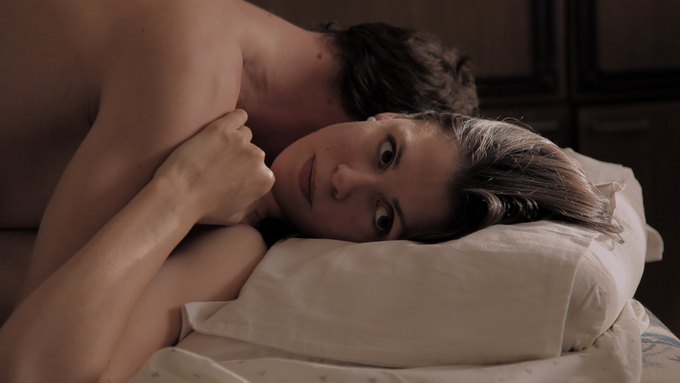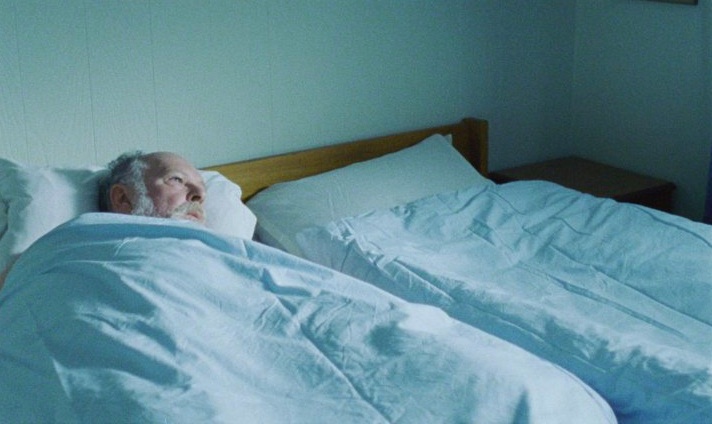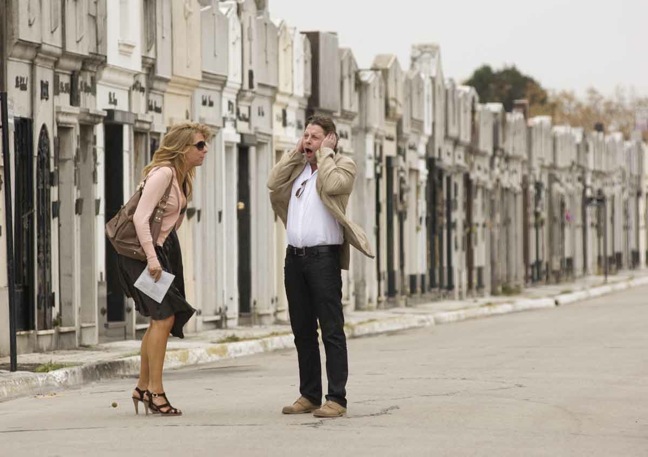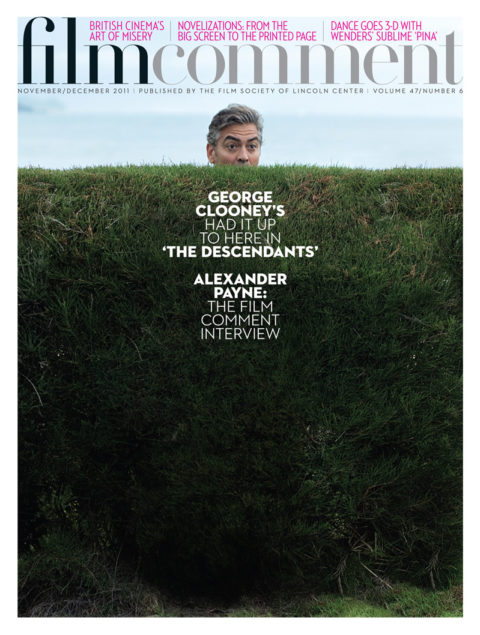The Reykjavik International Film Festival knows how to put on a show—or at least conceive one. In addition to the solid programming (now in the hands of Giorgio Gosetti, who’s taken over for Dimitri Eipides), their annual celebrity-couch viewing (in which festivalgoers are invited to screen films from the comfort of local celebrities’ homes), and special swimming-pool screening (which I can’t seem to stop talking about even if I don’t dip so much as a toe into the water), this year’s edition introduced a new adventure, shrouded in mystery. The only details initially revealed: “The participants—the filmgoers, that is—will be taken by bus beyond the city limits to enjoy Cinema in the Center of the Earth. More will not be disclosed for now. The rest will come as a surprise.” Sadly, the event took place on the day of my departure, but had I been able to stay longer, I would have been first in line. The surprise (according to reliable sources) was a trek to a cavern to watch the 1959 Journey to the Center of the Earth. Sadly though, torrential rain, which kept up throughout most of the festival, left the unprepared thrill-seekers soaking and freezing. The first scheduled outing was cut short; the second canceled. Hopefully by next year they can iron out the difficulties—under the right conditions, this has the potential to be a mind-blowing experience.

Twilight Portrait
Coincidentally or not, the stunningly beautiful yet (seasonally) bleak locale has a history of awarding prizes to beautiful, bleak films. This year’s Golden Puffin Discovery Award winner, Angelina Nikonova’s Twilight Portrait, was certainly no exception. Contemporary Russian filmmakers seem to be in a competition as to who can capture the state of their nation with the greatest intensity, and Nikonova’s entry rates high. The film begins as a woman is tormented and raped by a trio of policemen; her screams are within earshot of the discontented heroine, Marina (Olga Dykhovichnaya), who in a matter of time also falls victim to the bad cops, after her purse is snatched. But taking the rape-revenge path less traveled, Twilight Portrait veers into unexpected territory when Marina strikes up an affair with one of her attackers and, instead of inflicting physical violence, repeatedly assails him with the words “I love you.” Watching her course of (in)action play out is intriguing, frustrating, and unsettling.

Volcano
Selecting from the same batch of New Visions debut and sophomore films, both the FIPRESCI jury and the Church of Iceland awarded their Golden Puffins to that category’s only Icelandic offering, Rúnar Rúnarsson’s Volcano, an ultra-realistic, depressing portrait of aging and regret. A grizzly bear of a janitor, Hannes (Theodór Júlíusson) realizes upon retirement what a shit he’s been for most of his life. He has underappreciated his wife and neglected his two children due to a total inability to express love. As you’ve probably gathered by now, Volcano is in no way about Iceland’s pesky soot-spewing, airplane-grounding Eyjafjallajökull, but Hannes’s emotional eruption eventually comes—albeit too late to do him any good.
If Hannes’s daughter and son are not exactly sympathetic toward him, two films at RIFF featured sons overly attached to their mothers. The protagonist of Zaida Bergroth’s The Good Son is a teenager, the elder of two brothers, whose inappropriate upbringing by his vain movie-star single mom, comes to a head over one explosive weekend at the family lake house when her lover, unaware of the boy’s raging jealousy, dares to join them. It’s an unpredictable film, a darkly comic creepshow. A less dangerous attachment is found in the intentionally grating, semi-autobiographical The Best Intentions, directed by the Romanian Adrian Sitaru, who was honored this year with a complete film retrospective (two features, three shorts). A tightly wound guy, with caring girlfriend in tow, travels to visit his mom at the hospital after a she suffers a minor stroke. She appears to be in generally good health and spirits, but his incessant worrying about every last detail makes the situation way more unbearable than necessary.

SuperClásico
On the lighter side of family relations, the teenage son, Oscar (Jamie Morton), in Ole Christian Madsen’s SuperClásico wants nothing more than to get away from his parents. And who can blame him? His mom, Anna (Paprika Steen), has left him and his dad, Christian (Anders W. Berthelsen), for a much younger lover, a brain-cell-deprived soccer star who lives in Buenos Aires. Christian drags his son from Copenhagen to Argentina to try to bring the family back together, and of course, things don’t go as planned. As close to a golden-age screwball comedy as any recent film in memory, SuperClásico was a RIFF highlight and should be required palate-cleansing viewing at every future festival in which it appears.
© 2011 by The Film Society of Lincoln Center




